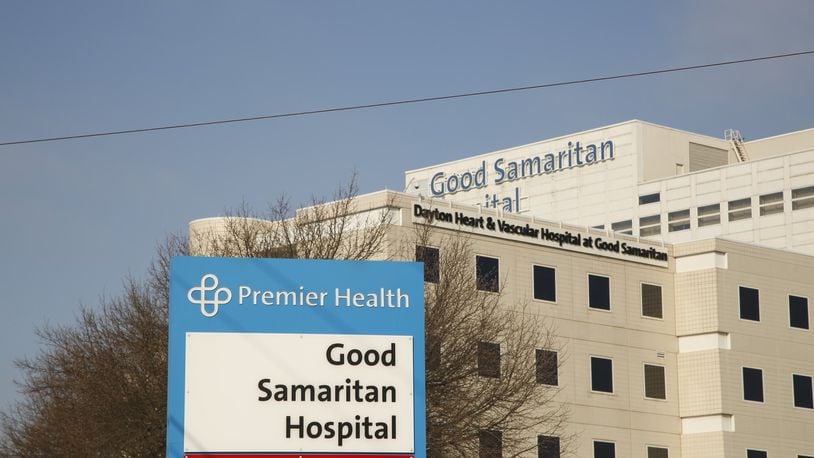But Premier Health deserves credit for contracting with a respected planning group to help engage the community and figure out a quality redevelopment plan for the site, Dickstein said.
“This is disappointing and bad news for the city, but we’ve had many times when companies uprooted and left without any conversation or concern about the community they were leaving,” Dickstein said.
RELATED: Premier Health to close Good Samaritan Hospital in Dayton
U.S. Rep. Mike Turner, R-Dayton, issued a statement saying he was “deeply saddened” by the news.
“Like many in the community, I am deeply saddened by this news. I am mindful Premier Health is more than a corporate citizen, but is a community leader. I look forward to working with them on their plans for the future at this site and their other hospital locations.”
‘Everything leaving’ west Dayton
Community activist Amaha Sellassie said this is another major blow to the beleaguered west Dayton community that relies on the hospital.
“I’m like in absolute shock … cause that’s a huge anchor for our community and it literally just seems like the west side is under attack,” he said. “The west side just keeps getting gutted, and I just don’t understand why.”
Good Samaritan is a key partner in the Phoenix Project, which is investing millions of dollars for redevelopment activities in the greater Fairview neighborhood around the hospital. Premier has also been involved in bringing access to fresh food to west Dayton, recently announcing it would donate $400,000 toward a new grocery store in the community.
RELATED: Premier to donate $400K to new west Dayton grocery
“I want to hear Premier’s plan to ensure the essential services that Good Samaritan has been providing to west Dayton is not lost,” Sellassie said.
This was echoed by people using or living near the hospital.
Kilo Simmons of Trotwood was visiting his aunt in the hospital at Good Samaritan when the news came on saying the hospital is closing.
Miami Valley Hospital being only five miles away doesn’t mean much to someone who doesn’t have a car, he said.
“How do they get there if they don’t have transportation?” he said. “Imagine a person walking out here in this cold, right now. Where are they going to get healthcare at?”
“It’s just like the grocery stores. Everything is leaving the west side of Dayton, man. Everything. Hospitals. Schools. Grocery stores. Everything is leaving.”
Eric Lewis rents a home owned by Premier that abuts the hospital. He grew up a few blocks from there.
“I’ve got several friends who have worked there for years,” he said. “It’s sad. It’s like everything is leaving the west side of Dayton.”
Hospital ‘anchored’ investment
As a nonprofit and community leader, Premier should not just sell the Good Samaritan site to any buyer — it should listen to community input and ensure the site is redeveloped in a beneficial way, said Dayton Mayor Nan Whaley.
Good Samaritan was an anchor institution whose presence in that area helped spark private and public investment, including the decision where to place the Dayton Metro Library’s northwest branch, Whaley said.
The city has spent millions of dollars in that area on infrastructure and other improvements to help leverage investment by Good Samaritan, and Premier hopefully will be continue to be partner and won’t walk away from the site, Whaley said.
Hospitals have “cannibalized” themselves by overbuilding in the suburbs, and this loss will be hard on West Dayton, which has endured 40 years of disinvestment, Whaley said.
Montgomery County Commission President Debbie Lieberman likewise said she understands it was not an easy decision for the hospital network and believes Premier will help employees and the community in the transition.
“One of the comments that was made to me was (hospital officials) aren’t going to be like NCR and just walk away,” she said.
The announcement impacts hospital employees, patients and the surrounding community. She said the county will work with Premier to minimize the impact on all three groups.
“The county will assist in making sure health care services remain strong in that area,” she said. “Its’ not like they are packing up and leaving the community, but we are deeply saddened by this. But we will move forward.”
Phoenix Project
Good Samaritan was a lead partner on the Phoenix project, which helped leverage more than $125 million in investments around the hospital since 2004, Dayton officials said.
Good Samaritan’s level of commitment to the project beyond this year is uncertain, Dickstein said, but the city and other partners will engage residents and businesses about potential reuse of the space.
Good Samaritan has spent more than $60 million on campus improvements and contributed almost $10 million to help fund other neighborhood improvements.
Some funding has paid for acquiring and demolishing blighted structures along the Salem Avenue corridor, which is traveled by about 27,000 motorists each day. The city of Dayton also invested more than $10 million in the Phoenix project.
The city will talk with the community about what types of redevelopment would fit the Good Samaritan property, officials said.
Parallels with NCR, St. Elizabeth
State Rep. Steve Huffman, R-Tipp City, is a practicing physician and said the former St. Elizabeth hospital site is a sign there is life after death for large medical centers.
“I thoroughly believe that the Good Samaritan site will become a very viable medical community given time and the assistance of Premier Health and others,” he said.
Franciscan Medical Center, originally St. Elizabeth Hospital, was the last major hospital to close in the city in 2000. The property is now home to a variety of medical offices and other health care providers.
Good Samaritan’s closure is a big setback considering there was strong and building momentum in that part of the city, said Dayton City Commissioner Joey Williams.
“However, we have a resilient community and if we can survive blows from General Motors and NCR, we can survive this blow as well,” he said.
